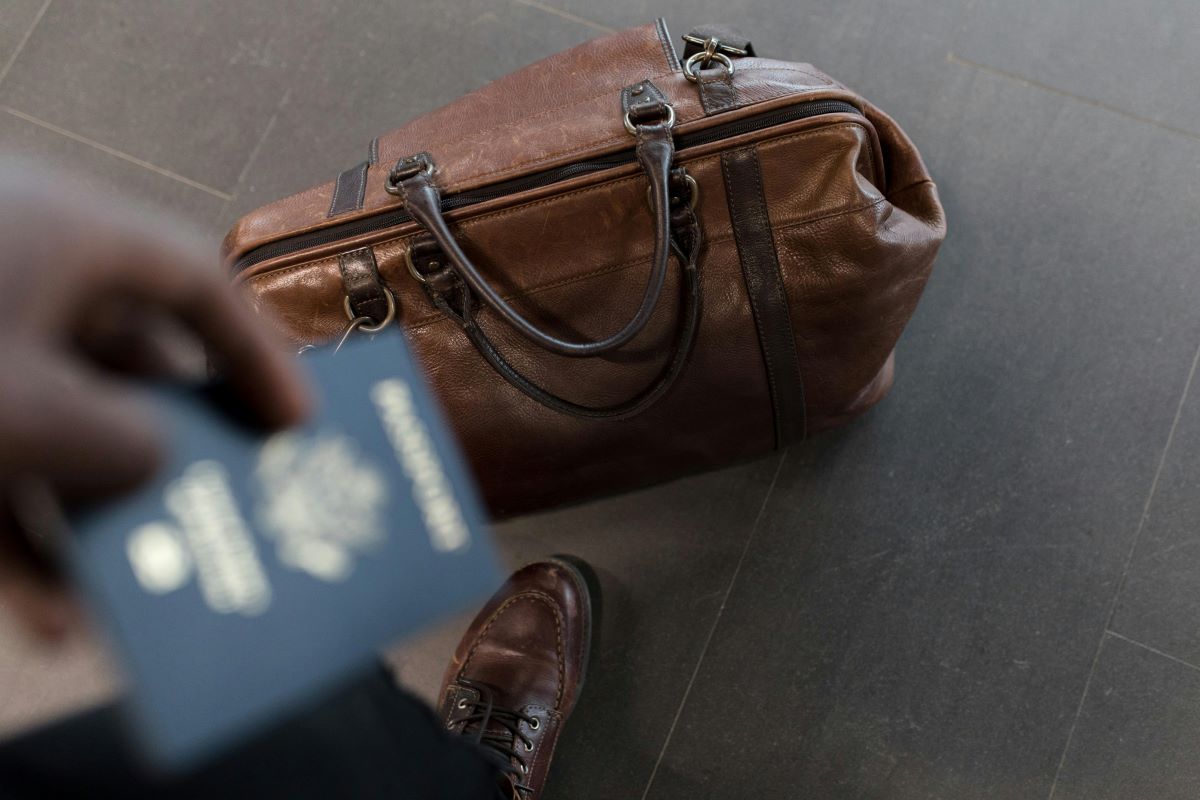Travel Tips for Visiting Africa During Peak Seasons
The African continent is a land of amazing landscapes, rich history and culture, along with a wildlife haven that draws many visitors each year. Travel during these peak seasons means that the weather is likely to be at its best and events are at their most exciting; however, there are downsides to those peak months, including crowds and higher prices. Planning and being prepared are the keys to making your journey memorable. Here are travel tips for visiting Africa during peak seasons.
1. Know Seasonal Peaks in Africa
Peak season in Africa depends on the region and the experience you’re looking for:
- Locations in the wild: The dry season, usually between June and the end of October, is best for watching the wildlife because animals concentrate near water. Other popular destinations are Kenya, Tanzania, South Africa, and Botswana.
- Beach Getaways: Coastal regions, like Zanzibar, Seychelles, and Mauritius, are at their busiest during the holidays and dry times — typically December to March and July to October.
- Cultural Festivals: Panafest in Ghana, Morocco’s Festival of World Sacred Music, or South Africa’s National Arts Festival all attract huge audiences.
- Climbing Adventures: Mount Kilimanjaro and Mount Kenya should be climbed in the dry months of January through March and June through October.
2. Booking in Advance Will Help You Save More Money
Peak seasons indicate a high demand for flights, accommodations , and tours. Bookings will provide you with the most economical options available.
- Flights: Prices typically surge in peak seasons for airfare. Use booking platforms that allow price alerts and book as early as six months prior.
- Accommodations: Popular lodges, safari camps, and beach resorts book up early. Make reservations and reconfirm them early to avoid disappointment.
- Tours and Guides: If you are going on safaris or a specific tour, booking far in advance ensures that you don’t miss out on the best guides, itineraries, etc.
3. Pack Wisely for the Time of Year and Location
Being prepared for Africa’s diversity of environments helps make your trip comfortable and safe:
Safari Essentials:
- Plain clothes to camouflage with the environment
- Lightweight, breathable fabrics for daytime, and warm layers for the cool mornings and evenings.
- Durable walking shoes, a wide-brimmed hat, and polarized sunglasses.
Beach Destinations:
- Bathing suits, flip-flops, and summer clothes.
- Reef-safe sunscreen and snorkeling equipment if you’re feeling adventurous.
High-altitude Adventure:
- Gloves, thermal layers, and a quality climbing jacket or jacket appropriate for cold regions.
General Tips:
- Travel universal adapter, Power bank, and a good water bottle.
- Also pack insect repellent and a simple first-aid kit.
4. Be Prepared for Crowds
High season will always bring out the crowds, particularly at the most popular attractions. Here’s how to avoid crowded destinations:
- Make it Less Popular: Go to off-the-beaten-path destinations, like Zambia’s South Luangwa National Park or Mozambique’s Quirimbas Archipelago.
- Plan Early Morning Activities: A safari, hike, or cultural tour will have the least number of people at dawn, and the experience will be one that many won’t get to enjoy.
- Put Them on Booking Hold: For moves like Robben Island in South Africa or gorilla trekking permits in Uganda, you need to book in advance.
5. Stay Safe and Healthy
Traveling during peak seasons means you spend more time with people and in certain environments. Put your health and safety first:
Health Precautions:
- Research vaccine requirements for your destination, including yellow fever and COVID-19.
- Travelers to malaria-risk areas should facilitate antimalarial medication.
- Avoid drinking tap water at all costs to prevent gastric problems.
Safety Tips:
- Do not advertise valuables in large crowds.
- Only use reliable transport and guides
- Make copies of your travel documents, both digital and physical.
6. Plan Your Budget for Peak-Season Expenses
Peak-season travel typically comes with a price tag. Budget smart to keep overspending at bay:
- Accommodation: Instead of splurging on luxury lodges, consider staying at a guesthouse or renting an Airbnb.
- Transport: Look for group tours or shared transfers to save costs
- Meals: Eat at local places for authentic cuisine at low prices.
- Activities: Focus on things you have to do and skip the fluff to remain on a budget.
7. Stay in Tune with Local Culture and Traditions
Connecting with local cultures makes for a satisfying travel experience and creates lasting connections:
- Learn some basic phrases: A few words here and there in Swahili, Zulu, or other local languages can go a long way toward forging a bond.
- Be respectful of traditions: Wear modest clothes when visiting rural areas or around religious sites.
- Buy Local Handmade Goods: Bring home a piece of the local culture by purchasing handicrafts, textiles, or jewelry.
8. Be Flexible and Patient
Travel during peak season can mean delays or changes you did not anticipate. Putting on a flexible and patient mindset makes the journey smoother:
- Make Time: Allow yourself plenty of time before flights, transfers, and activities.
- Be Flexible: If a high-demand attraction is booked up, look for something similar nearby.
- Enjoy the Journey: Peak season is a time of energy, excitement – bustling markets, festival season, enjoy the ride.
9. Capture Memories Responsibly
Photography is a great way to catalog your African adventure, but please do so mindfully:
- Seek Permission: Always ask first before taking photographs of people, especially in more rural communities.
- Respect the Wildlife: Keep your distance and don’t use flash while on safari.
- Pay Attention to Sacred Sites: Adhere to local protocol for entering religious or cultural landmarks.
10. Travel Sustainably
Sustainable travel preserves Africa’s natural and cultural heritage for generations to come:
- Sustainable Lodging: Book a hotel that gives back to the environment and people.
- Minimize Plastic (instead of single-use items): Bring your own reusable bags, bottles, and containers.
- Select Eco-Friendly Whale charters: Use operators that follow responsible viewing practices and give back to conservation.
Final Thoughts
The best time to travel to any destination is when you can get the most out of the same. With some thorough planning, an open mindset, and consideration of the local people and ecology, you can ensure that you have an unforgettable and incredibly rewarding experience. Whether you’re gawking at the Great Migration, lounging on unspoiled beaches, or plunging headlong into colorful festivities, Africa offers an adventure much like no other. The above are essential travel tips for visiting Africa during peak seasons. So, start packing your bags, planning your itinerary, and prepare for an adventure of a lifetime on the roads of this beautiful continent.
📞 Call/WhatsApp: +254 748 057 500
📧 Email: info@pleasantadventure.com
🌍 Website: www.pleasantadventure.com
FAQs
1. When is the peak travel season in Africa?
The peak season varies by region, but for safaris, the dry season (June–October) is the most popular. Beach destinations like Zanzibar, Seychelles, and Cape Town are busiest in December–March.
2. Why is peak season the best time to visit Africa?
Peak season offers ideal wildlife viewing, pleasant weather, and top cultural events. However, it also means higher prices and more tourists.
3. How far in advance should I book my trip during peak season?
It’s best to book flights, hotels, and safari lodges 6–12 months in advance to secure availability and avoid last-minute price surges.
4. What are the best safari destinations during peak season?
Top safari parks include Serengeti (Tanzania), Maasai Mara (Kenya), Kruger National Park (South Africa), and Chobe National Park (Botswana), where wildlife is easiest to spot.
5. Are flights to Africa more expensive during peak season?
Yes, flight prices tend to increase significantly during peak travel months. Booking early or using travel reward points can help cut costs.
6. What should I pack for traveling to Africa in peak season?
Pack light clothing for hot days, warm layers for chilly mornings, a hat, sunscreen, insect repellent, and comfortable shoes for walking safaris or city explorations.
7. How can I avoid crowds while traveling in Africa’s peak season?
Visit less crowded national parks like Ruaha (Tanzania) or South Luangwa (Zambia), explore off-the-beaten-path beaches, or travel during shoulder months (May & November).
8. Are accommodations more expensive during peak season?
Yes, hotels, lodges, and camps often raise their prices, and budget options fill up quickly. Booking in advance can help secure better deals.
9. What cultural events or festivals happen during peak season in Africa?
Popular events include the Great Migration in Kenya/Tanzania (July–October), Cape Town’s summer festivals (December–March), and Zanzibar’s Sauti za Busara music festival (February).
10. Is it safe to travel to Africa during peak season?
Yes, but always follow safety tips: book reputable tour operators such as Pleasant Adventure Kenya, avoid walking alone at night, respect local customs, and be aware of travel advisories.

